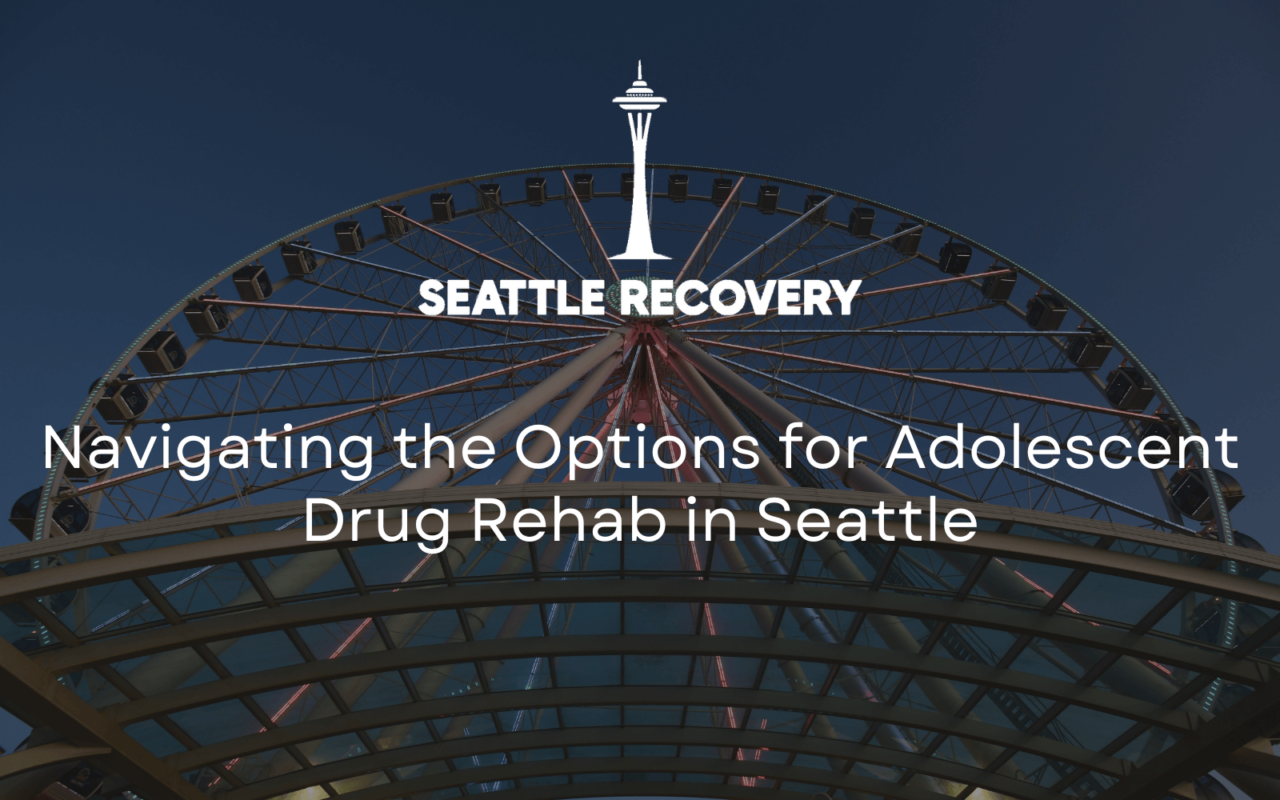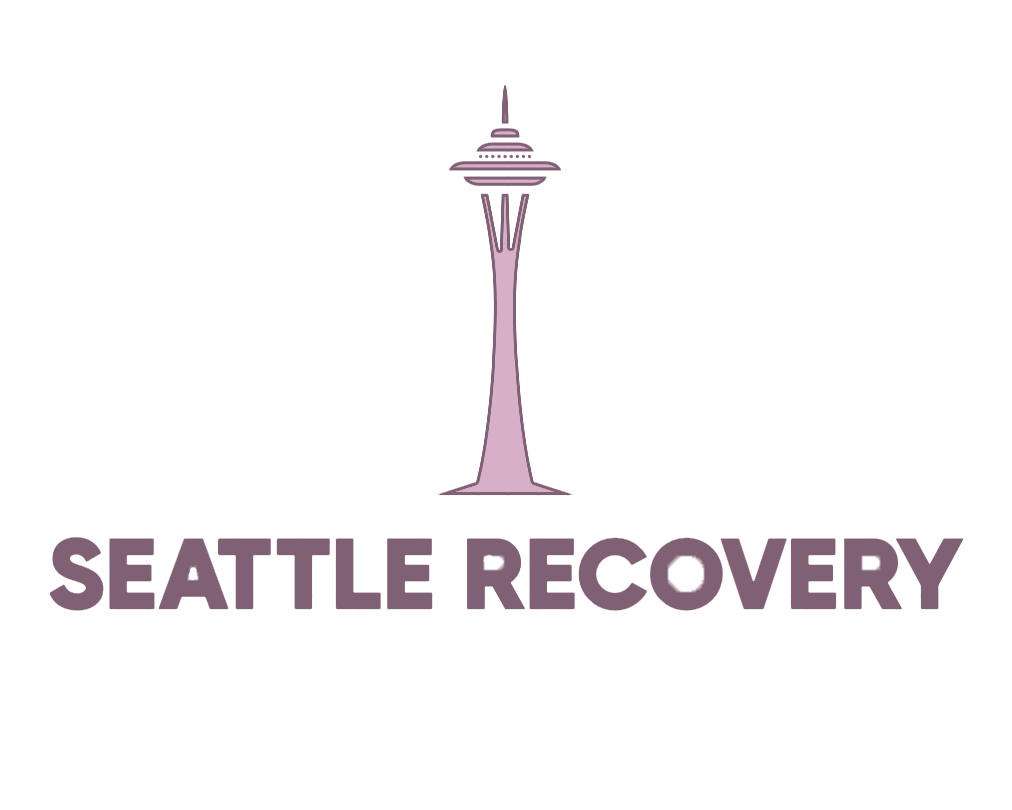Parenting is already a challenging journey, filled with ups and downs, but when substance use enters the picture, it can feel like an uphill battle. The emotions of fear, confusion, and helplessness can weigh heavily. If your teenager is struggling with drug or alcohol use, you may feel isolated or unsure of what steps to take. The good news is, you’re not alone—and there’s support and resources available to help both you and your teen. At Seattle Recovery, we understand the unique challenges families face during this difficult time. Our mission is to guide you through the process and help you find the best adolescent drug rehab in Seattle to meet your teen’s specific needs.
This article will be your comprehensive guide to understanding adolescent addiction treatment. We’ll walk you through everything you need to know, from recognizing the early signs of drug or alcohol use to understanding the treatment options available. You’ll gain insights into how to choose the right rehab program for your teen and learn about the tools and resources that can help them build a brighter future. Whether you’re just starting this journey or have been searching for answers for a while, we’re here to provide clarity, support, and hope for your family’s next steps.
The Growing Need for Adolescent Drug Rehab in Seattle
Seattle, like many cities across the United States, has seen a troubling rise in adolescent substance use over the past decade. The combination of academic pressures, social influences, mental health struggles, and exposure to substances has created a perfect storm for many teens. Factors such as peer pressure, family dynamics, and the increasing availability of substances have further fueled this growing issue, leaving many adolescents at risk.
According to the National Institute on Drug Abuse (NIDA), early intervention is critical for teens, as their brains are still developing and are particularly vulnerable to the effects of substance use. Engaging in substance use during these formative years can have long-term consequences, including impairments to cognitive development, increased risk of mental health disorders such as anxiety and depression, and negative impacts on future life outcomes such as education and career prospects.
At Seattle Recovery, we believe that every teen deserves the chance to heal and thrive, no matter how overwhelming their struggles may feel. That’s why we’ve designed our adolescent drug rehab programs to address not just the addiction but also the underlying factors contributing to it. By focusing on a holistic and individualized approach, we aim to provide teens with the tools they need to rebuild their lives, strengthen their mental health, and create a support system that fosters long-term recovery and success.
Signs Your Teen May Need Rehab
Before diving into the treatment options, it’s essential to recognize the warning signs that your teen may need professional help. Adolescence is a time of change, and while occasional mood swings and shifts are normal, certain behaviors may signal a deeper issue that requires attention. If you’re concerned about substance use, Adolescent Drug Rehab in Seattle can provide the support and resources your teen needs. Being observant and proactive can make a crucial difference in your teen’s well-being. Here are some common warning signs to watch for:
Sudden Changes in Behavior
Look out for unexplained anger, irritability, or withdrawal from family and friends. If your teen starts exhibiting drastic personality changes or engaging in risky behaviors, such as defiance or aggression, it may be more than typical teenage angst.
Decline in Academic Performance
A noticeable drop in grades, missed assignments, or a general lack of interest in school and extracurricular activities could signal a serious issue. Teens who are struggling often lose focus on their education and may even skip classes or avoid school altogether.
Physical Symptoms
Pay attention to physical changes such as bloodshot eyes, frequent nosebleeds, sudden weight loss or gain, or ongoing illness without a clear cause. These symptoms could indicate substance use or other health concerns that need to be addressed.
Social Withdrawal
Your teen may start isolating themselves from their usual friend group, spending long periods alone, or losing interest in hobbies and activities they once loved. Alternatively, they might begin associating with new, questionable peers who influence negative behaviors.
Financial Irregularities
Missing money, unexplained expenses, or valuable items disappearing from your home could be a red flag. Teens struggling with substance use may resort to borrowing or taking money to fund their habits.
If you notice a combination of these signs, it’s a strong indication that your teen may need professional support. Seeking adolescent drug rehab in Seattle can be an important step in addressing these issues and helping your teen get back on track. Early intervention can make all the difference in ensuring a brighter, healthier future for your child.
Types of Adolescent Drug Rehab Programs
Choosing the right type of rehab program is crucial to your teen’s recovery journey. Every adolescent is different, and their treatment should reflect their unique needs, challenges, and goals. Here are the primary types of adolescent drug rehab programs available in Seattle:
1. Inpatient Treatment
Inpatient, or residential, rehab offers a highly structured environment where teens can focus entirely on recovery. This program removes them from potentially toxic environments and provides 24/7 supervision and care. Inpatient treatment is ideal for teens with severe substance use disorders or those who have relapsed multiple times.
Key components of inpatient treatment include:
- Medical detox, if necessary.
- Daily individual and group therapy sessions.
- Holistic activities like yoga, art therapy, and outdoor activities.
- A supportive community of peers working toward recovery.
2. Outpatient Programs
Outpatient programs allow teens to continue living at home while attending therapy and treatment sessions during the day. This is a more flexible option for families and is suitable for teens with mild to moderate substance use issues.
Benefits of outpatient care include:
- Maintaining family and school routines.
- Building accountability within the home environment.
- Access to therapy without the need for residential care.
3. Partial Hospitalization Programs (PHPs)
PHPs are a step up from outpatient care, providing a more intensive treatment schedule without requiring overnight stays. Teens typically spend 4-6 hours a day in therapy and structured activities, allowing them to receive a high level of support while still returning home in the evenings.
4. Dual Diagnosis Treatment
Many teens struggling with addiction also face co-occurring mental health disorders, such as depression, anxiety, or trauma. Dual diagnosis programs address both the addiction and the mental health challenges simultaneously, ensuring a more comprehensive approach to recovery.
5. Therapeutic Boarding Schools
For families seeking long-term care, therapeutic boarding schools offer a combination of academic support and addiction treatment in a structured residential setting. These programs focus on building life skills, self-discipline, and healthy coping mechanisms.

The Importance of Family in Adolescent Recovery
Addiction doesn’t just affect the individual—it impacts the entire family. At Seattle Recovery, we believe that family involvement is a cornerstone of successful adolescent drug rehab in Seattle. By engaging families in the recovery process, we help rebuild trust, improve communication, and create a supportive home environment that fosters long-term healing.
Ways Families Can Support Recovery:
- Participating in Therapy: Family therapy sessions help address underlying issues and improve relationships.
- Learning About Addiction: Understanding the science of addiction can reduce stigma and foster empathy.
- Setting Healthy Boundaries: Encouraging recovery without enabling harmful behaviors is key.
How to Choose the Right Adolescent Drug Rehab in Seattle
With so many options available, finding the best program for your teen can feel overwhelming. Here are some essential factors to consider when evaluating your options:
1. Accreditation and Licensing
Always choose a facility that is licensed and accredited by reputable organizations like the Joint Commission or CARF. This ensures that the program meets high standards of care.
2. Evidence-Based Practices
Look for programs that use proven, evidence-based therapies such as Cognitive Behavioral Therapy (CBT), Dialectical Behavior Therapy (DBT), and motivational interviewing.
3. Experienced Staff
From licensed therapists to medical professionals, the quality of the staff can make a significant difference in your teen’s recovery experience.
4. Individualized Care Plans
Every teen’s journey is unique. The best programs tailor treatment plans to address your child’s specific needs, including their mental health, substance use history, and family dynamics.
5. Aftercare Support
Recovery is a lifelong process. A solid aftercare plan that includes continued therapy, peer support, and relapse prevention strategies is critical for long-term success.
What Sets Seattle Recovery Apart
At Seattle Recovery, we take pride in being a trusted leader in adolescent drug rehab in Seattle, offering a compassionate and effective approach to teen recovery. Here’s what sets our programs apart:
- Integrated Mental Health Care: We understand that addiction often goes hand-in-hand with underlying mental health challenges. That’s why our dual diagnosis programs provide teens with comprehensive care, addressing both their addiction and mental health needs simultaneously. Our team of experienced therapists and counselors is dedicated to helping teens achieve long-term stability and wellness.
- Family-Focused Approach: Recovery is a journey that involves not just the individual but their entire support system. We empower families to play an active role in the recovery process by offering family therapy, education, and resources. This collaborative approach helps rebuild trust, improve communication, and create a stronger foundation for lasting recovery.
- Flexible Options: Every teen’s journey is unique, which is why we offer a wide range of programs designed to meet their specific needs. Whether your teen requires the structure of inpatient care or the flexibility of outpatient support, we tailor our offerings to provide the right level of care at every stage of their recovery.
At Seattle Recovery, our goal is to provide a safe, nurturing environment where teens can heal, grow, and take the first steps toward a brighter future.
Building a Future Beyond Addiction
Helping your teen overcome substance use is about more than just stopping the behavior—it’s about equipping them with the tools to create a meaningful, substance-free life they can be proud of. At Seattle Recovery, our Adolescent Drug Rehab in Seattle goes beyond addressing the immediate issue by focusing on life skills, healthy coping mechanisms, and personal growth. We teach teens how to manage stress, build self-confidence, and foster positive relationships, all while addressing the underlying causes of their substance use. Our goal is to ensure your teen leaves treatment not just sober, but fully prepared to face challenges and embrace a brighter future.
Frequently Asked Questions (FAQs)
1. What types of therapy are used in adolescent drug rehab?
Most programs incorporate individual therapy, group therapy, family therapy, and experiential therapies like art or outdoor activities.
2. Can my teen participate in rehab without missing school?
Many programs, including ours, offer academic support to ensure teens can continue their education while in treatment.
3. How long does rehab last?
The duration depends on the type of program and the severity of the addiction. Inpatient programs typically last 30-90 days, while outpatient care may continue for several months.
4. Will insurance cover the cost of rehab?
Most insurance plans cover some or all of the costs associated with addiction treatment. Check with your provider to understand your coverage.
5. How do I talk to my teen about rehab?
Approach the conversation with empathy and understanding. Focus on your concern for their well-being and explain how rehab can help them heal.
Final Thoughts
Navigating the options for adolescent drug rehab in Seattle doesn’t have to be overwhelming. It’s natural to feel uncertain, but with the right information, resources, and support, you can help your teen take those critical first steps toward a healthier, brighter future. Understanding the available treatment options and knowing what to look for in a rehab program can make all the difference in finding the right fit for your child’s needs.
At Seattle Recovery, we’re dedicated to providing compassionate, evidence-based care tailored specifically for teens. Our team of experienced professionals works to address not only the addiction but also the underlying challenges your teen may be facing, such as mental health struggles or trauma. We’re here to walk alongside you on this journey, offering the guidance and support your family needs to navigate this challenging time. Contact us today to learn more about our programs, our approach, and how we can help your family find hope and healing. Visit our website https://seattlerecovery.org/ or call us at (206) 231-0252.







